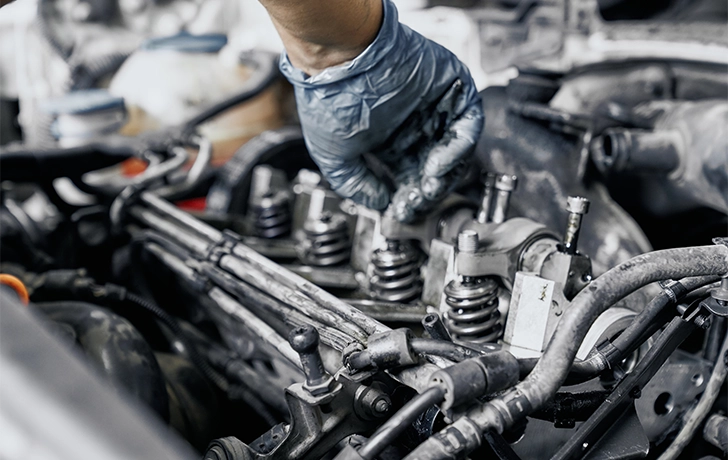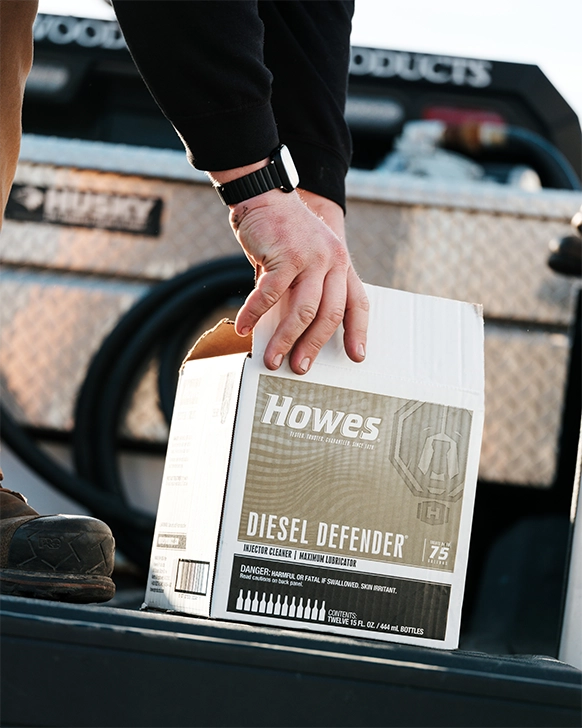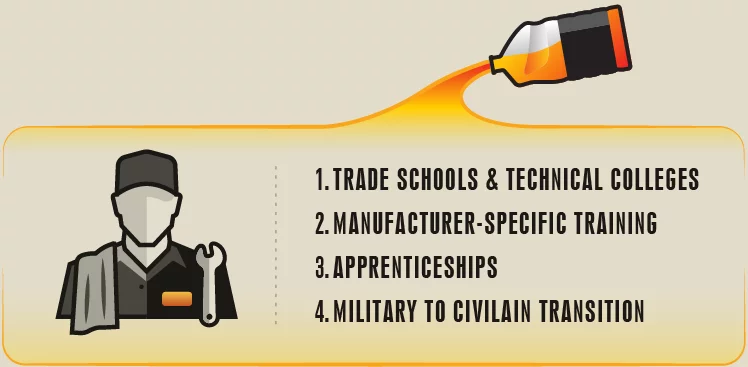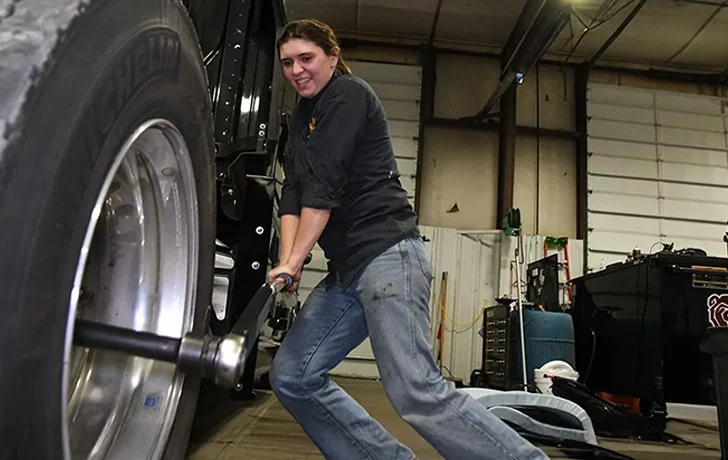
07/29/25
By Rich Guida
The backbone of America's transportation and logistics industry runs on diesel, literally. From long-haul semis and farm equipment to construction vehicles and diesel pickups, keeping these machines running requires skilled hands and technical expertise. But there’s a growing problem: we’re facing a nationwide shortage of diesel mechanics.
And it's not just an inconvenience; it could become a serious economic bottleneck.
The diesel mechanic shortage is driven by a combination of demographic shifts, educational trends, and workplace challenges. The result is a widening gap between supply and demand. Several factors are converging to create this labor gap:
Much like the trucking industry, a significant percentage of today’s diesel mechanics are nearing retirement. According to industry data, the average age of a diesel mechanic is over 45, and many experienced technicians are aging out without a large enough pool of new talent to replace them.

Though there have been strong efforts to grow the interest and viability of trades like that of a diesel mechanic, there remains a strong societal push toward four-year college degrees, often at the expense of vocational training. As a result, fewer young people are entering trades like diesel repair, despite these fields offering stable and lucrative careers. As a matter of fact, enrollment in trade schools has declined by around 12% since 2019. This has left an insufficient number of licensed entrants into diesel technician roles. While it is estimated that over 25,000 new entries are needed annually to meet demand through 2030, only a little more than 10,600 completions were recorded in 2021.
Modern diesel engines are more advanced than ever, integrating electronics, emissions systems, and diagnostic software. This raises the bar for training and requires ongoing education, making it harder for underfunded programs or untrained hobbyists to keep pace.
A shortage of diesel mechanics doesn’t just impact truck repair shops—it affects everyone:
This crisis mirrors the ongoing shortage of truck drivers. Both fields suffer from aging workforces, a lack of young entrants, and a misperception that these careers lack future opportunities. In truth, both are essential and offer long-term job security, competitive pay, and advancement potential.

Staying on top of routine maintenance is one of the best ways to avoid costly diesel engine repairs. Another simple yet effective step is using a quality diesel additive at every fill-up. The full line of diesel additives from Howes Products helps ensure your system stays clean and protected by adding vital lubricity, removing water, and eliminating harmful sediments, all common culprits behind diesel system issues. As a bonus, Howes additives are proven to increase power and performance while delivering guarantees that can't be beat.
Whether you're mechanically inclined or simply looking for a career shift into a high-demand trade, a diesel mechanic is a smart path to consider.

And many of these roles offer benefits like tool allowances, health insurance, overtime pay, and relocation opportunities.
Solving the diesel mechanic shortage won’t happen overnight, but raising awareness is the first step. Schools, parents, and employers all have a role to play in promoting these vital careers. If you're someone looking for a meaningful, hands-on profession that’s in high demand and pays well, consider diesel mechanics.
At Howes Products, we are deeply invested in the world of diesel, especially the trucking and farming industries, and support their success. Our relationships in these industries include supporting education for truckers and farmers and partnering with key groups like Women in Trucking and the Farmer Veteran Coalition to promote the multitude of occupations within them.
